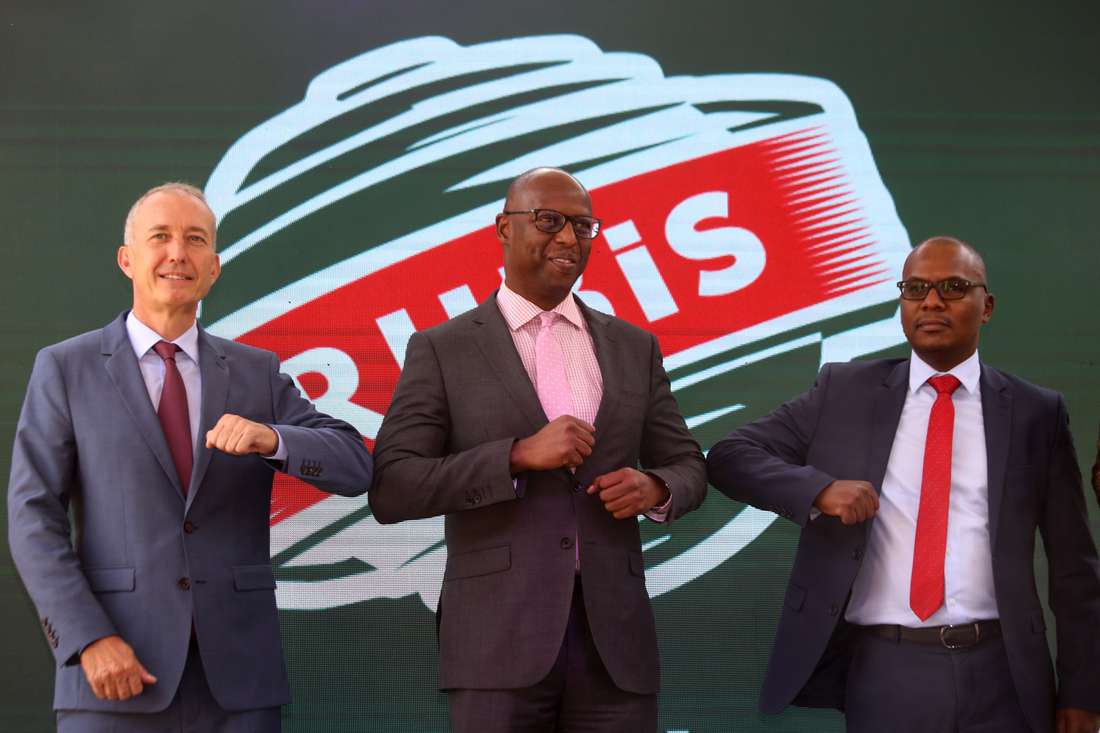Petroleum PS Andrew Kamau (centre), Rubis Energy Kenya Group managing director and East Africa CEO Jean-Christian Bergeron (left) and General Manager Martin Kimani during the launch of Rubis Energy Kenya after the aquisation of KenolKobil and Gulf Energy Holdings at United Nations Avenue, Gigiri in Nairobi. PHOTO | KANYIRI WAHITO | NMG French multinational Rubis Énergie has spent Sh2.4 billion to rebrand the Kenyan fuel stations operated by its local subsidiaries KenolKobil and Gulf Energy.
The amount is expected to rise in the near term as the company aims to operate under the single Rubis brand by 2022 in a process that includes repainting and upgrade of equipment.
“The … expenditure on rebranding, station reconstruction and the refurbishment of distribution equipment in Kenya is in the amount of €19 million (Sh2.4 billion),” Rubis says in a trading update.
Rubis Kenya managing director Jean-Christian Bergeron told Business Daily that the cost of rebranding one outlet ranges between $30,000 (Sh3.2 million) and $80,000 (Sh8.6 million).
Besides rebranding the outlets acquired, Rubis will also build new service stations as it seeks to expand its market share.
“By end of 2022, all brands will be under Rubis. We also intend to have rebranded 250 outlets by then,” Mr Bergeron said.
The acquisition of KenolKobil and Gulf Energy catapulted Rubis to the top of Kenya’s retail petroleum market with a combined market share estimated at 20 percent, leaping over Total Kenya and Vivo Energy Kenya (the Shell licensee).
The French multinational says its Kenyan operations were hurt by the lockdown of the country in the wake of the Covid-19 pandemic.
“In Kenya, KenolKobil and Gulf Energy Holdings Limited were impacted by lockdown and severe inventory and margin effects in the aviation segment,” Rubis said in a review of first performance in the half year ended June.
The restrictions on domestic and international travel, which were in force between March and July, severely reduced demand for petroleum products.
